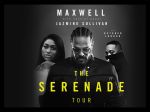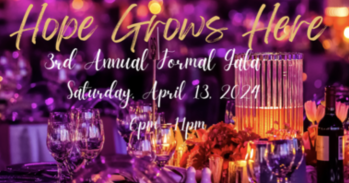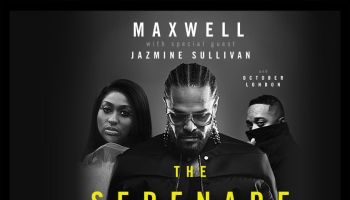I’ve read quite a few intellectually dishonest articles in my day, but never one so blatant in its intent than that of The New Republic’s John McWhorter’s piece, “A Hip-Hop Enthusiast in Defense of White Power Music.”
RELATED: Wisconsin Shooter Was White Supremacist
The article begins as follows:
“It has been fashionable in the wake of Wade Michael Page’s tragic acts in Wisconsin to speculate on whether the White Power music he listened to helped stoke him into the senseless murders he committed. Such speculations, however, are as incoherent as they are pointless—and they are marked, above all, by a cloying air of self-congratulation.
“A comparison with another musical genre helps put the debate into relief.”
You can probably see where this is going.
Want to Keep Up With NewsOne.com? LIKE Us On Facebook!
There is little doubt that McWhorter is a brilliant man and when he hits the mark on an issue, he hits it with sharp precision. Still, primarily recognized as a Black neo-conservative who has defended Pizza magnate, Herman Cain, as being an authentic southern, Black man who has a right to shuck and jive on a public stage if he so chooses, he is also the man who labeled “Cornbread’s” particular brand of bigoted comedy “traditional” Black humor:
“Cain has been regularly employing on the campaign trail a particularly black rhetorical comic style, one that involves a certain cartoonish, and fantastic treatment of violence. This is the tradition he was drawing on, for example, when he called for a border fence that would electrocute Mexicans.”
Yeah, hilarious stuff…if you’re a racist moron.
Still, McWhorter has managed to surpass even himself in his latest article that actually comes to the defense of White Power music and equates it to Hip-Hop.
Wade Michael Page, the gunman who stormed into a Sikh Temple in Wisconsin, was a fan of White Power music and it has been heavily speculated that the genre encouraged his rage the day of the massacre that ended in so much senseless tragedy.
“If you are playing white power music … you are learning how to hate people and you are practicing emotional violence against them. Tragically, what happened Sunday was the logical conclusion of this hate and violence,” said former white supremacist Arno Michaels, the founder of Life After Hate.
I absolutely agree, but here comes McWhorter to defend the trash with false equivalency:
“Those who listen to rap—including myself—are not passively consuming its message, but actively seeking it as a release. Indeed, last I heard, the enlightened take on rap lyrics is that their violence must be taken not as counsel but as poetry, poses of strength from disenfranchised people—“Black Noise” as Brown’s Tricia Rose calls it. Other academics, priding themselves on their connection with the music, crown the makers of violent rap as “Prophets of the Hood” (Imani Perry, Princeton) or “Hoodlums” (William Van Deburg, University of Wisconsin), the latter meant as an arch compliment to men celebrated for speaking truth to power.
“And there is more than a little bit of truth to this treatment of rap’s violent strain. It is, indeed, an attitude that functions as a response to the frustrations of everyday life. In that light, rapademics have been fond of noting that old-time “toasts” among black people had their violent strains as well. Despite the prevalent anxieties in the 1990s about the social consequences of rap music, evidence that the music causes actual violence never actually surfaced.
“In this light, we must ask why ugly White Power music should be thought of as any different. Certainly it must help bond adherents of the movement. But the proper question is: If the music didn’t exist would fewer adherents decide to attack people? The evidence here is nil. For example, one might note that in this country, overtly racist violence was a commonplace throughout the South up to about 1970 without the need for a music genre to keep its practitioners stoked, much less an Internet to broadcast it. The men who killed Emmett Till in 1955 weren’t stoked up by music telling them what to do.”
I can not even begin to understand how White Power music “functions as a response to the frustrations of everyday life.” What exactly are they frustrated about that we should feel empathy? Not being able to lynch Black people, perhaps? Or maybe not being able to bomb little girls in Birmingham, Alabama? Maybe we should be more cognizant, from an academic stand-point of course, that White Power music is an extension of some barely sheathed violent need for world domination and that Hip-Hop fulfills the same need that allows us to rise up — at least momentarily — and release all feelings of aggression and oppression that are pent-up from everyday living in a racist society? According to McWhorter’s piece, release from oppression and quest for oppression should be viewed through the same lens.
I call bulls**t.
No, causation has not been proven on a large scale, Dr. McWhorter; however, correlation has been proven in several studies – including the abundant, anecdotal evidence that dwells in an environment where the exaggerated bravado of commercialized Hip-Hop is played out every, single day. Sexism, violence and drugs, though in existence long before the genre, have all been made popular by main-stream Hip-Hop and Rock-n-Roll, just as White Power music — though not responsible for its existence — clearly plays a role in sustaining and encouraging the culture of violent White supremacy. Anyone who says otherwise — or who seeks to defend the indefensible with a “Good-for-the-goose-good-for-the-gander” esque argument — is in denial, when most in Black America fully accept that the goose needs serious rehabilitation.
Ironically, Dr. McWhorter had no problem acknowledging this exact point in an article he wrote in City Journal in 2003, entitled ‘How Hip-Hop Holds Blacks Black‘:
“…I was having lunch in a KFC in Harlem, sitting near eight African-American boys, aged about 14. Since 1) it was 1:30 on a school day, 2) they were carrying book bags, and 3) they seemed to be in no hurry, I assumed they were skipping school. They were extremely loud and unruly, tossing food at one another and leaving it on the floor.
“Black people ran the restaurant and made up the bulk of the customers, but it was hard to see much healthy “black community” here. After repeatedly warning the boys to stop throwing food and keep quiet, the manager finally told them to leave. The kids ignored her. Only after she called a male security guard did they start slowly making their way out, tauntingly circling the restaurant before ambling off. These teens clearly weren’t monsters, but they seemed to consider themselves exempt from public norms of behavior—as if they had begun to check out of mainstream society.
“What struck me most, though, was how fully the boys’ music—hard-edged rap, preaching bone-deep dislike of authority—provided them with a continuing soundtrack to their antisocial behavior. So completely was rap ingrained in their consciousness that every so often, one or another of them would break into cocky, expletive-laden rap lyrics, accompanied by the angular, bellicose gestures typical of rap performance. A couple of his buddies would then join him. Rap was a running decoration in their conversation.
“Many writers and thinkers see a kind of informed political engagement, even a revolutionary potential, in rap and hip-hop. They couldn’t be more wrong. By reinforcing the stereotypes that long hindered blacks, and by teaching young blacks that a thuggish adversarial stance is the properly “authentic” response to a presumptively racist society, rap retards black success.”
Evidently, Dr. McWhorter has had a severe change of heart.
Even more problematic, is that the current conversation has not been framed around White power music “causing” Page’s virulent attack, but rather being a conduit for those White supremacists who already have violent tendencies. McWhorter’s shift in context actually gives the impression that there is something benign in sentiments of White Power placed over a menacing track, which is one of the most socially irresponsible arguments I have ever had the misfortune of reading.
To encase the cesspool that has become commercialized Hip-Hop in the rich history and purpose of the entire genre, and then make it synonymous with the poison rhetoric of white supremacy that informed the actions of a mass murderer is extremely dangerous — or rather would be if anyone actually took John “Hip-Hop Enthusiast” McWhorter’s assertion seriously.
Lesson for today: White ignorance and White privilege are flip sides of the same coin…even when — especially when — they manifest wearing Blackface.
RELATED: Gunman Walks Into Sikh Temple And Kills 6
Black Scholar Defends White Power Music: It’s The Same As Hip-Hop was originally published on newsone.com













